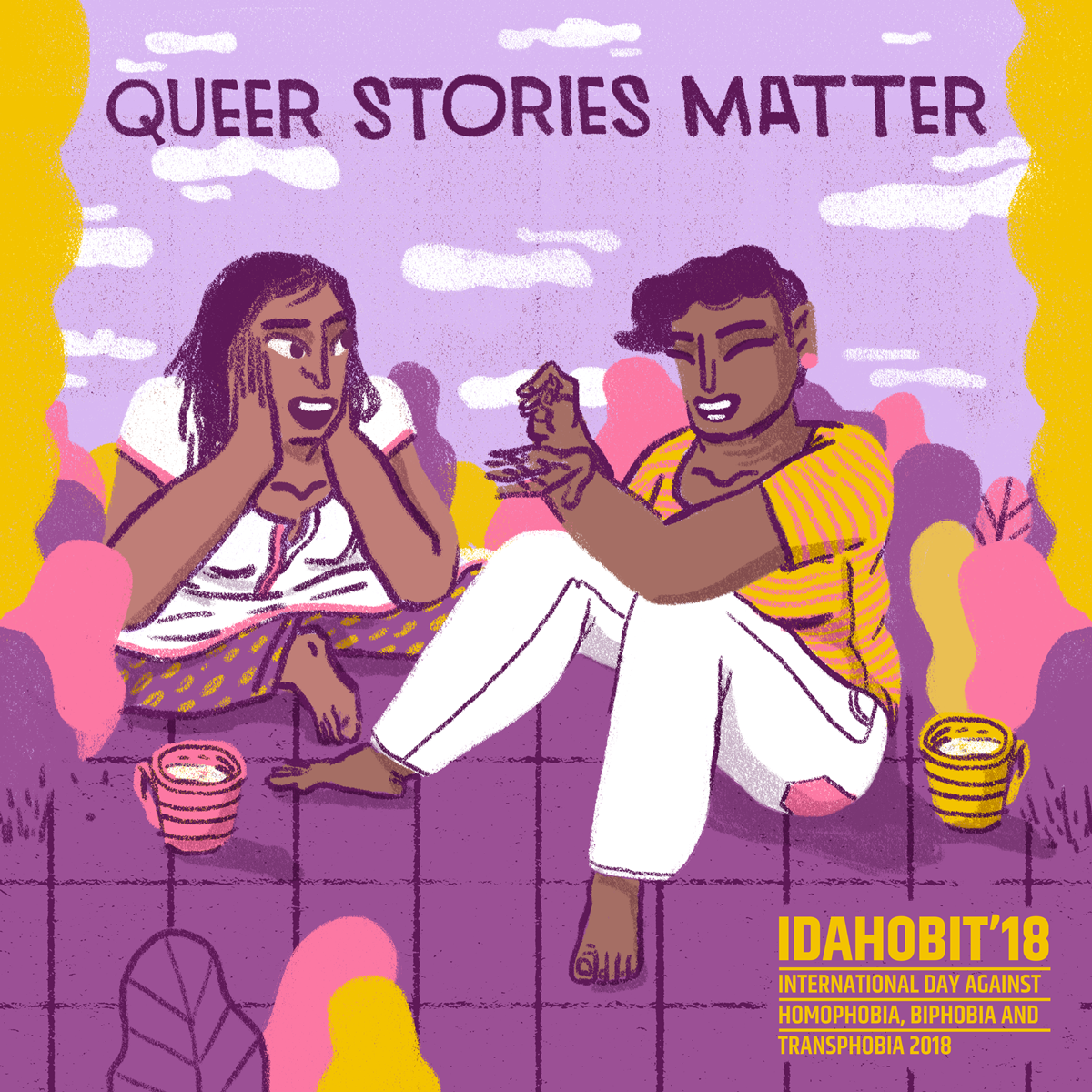Kawira Mwirichia’s Queer Flags

Kenyan artist and activist Kawira Mwirichia is empowering queer communities across the world with her international flag series.
Cover photo: Botswana Kanga Flag (“Let go of all the hate and ignorance and you’ll surprise yourself!"), by Kawira Mwirichia (2017). Via the artist’s website.
This article is part of my 30 Living Queer Artists Worth Celebrating in 2019 series. June is Pride Month, commemorating the international gay rights movement that began June 28th, 1969, with the Stonewall riots of New York. 2019 marks the 50th anniversary of the event. I’m celebrating all month long!
Kawira Mwirichia
Nairobi-born artist and activist Kawira Mwirichia is working to empower queer communities all over the world, specifically Kenya. Mwirichia is best known for her kanga flag series, To Revolutionary Type Love, which she began in 2017.
To Revolutionary Type Love
Mwirichia’s latest project, To Revolutionary Type Love, is a celebration of the global queer community, through the medium of traditional east African kangas. Kangas are versatile cotton cloths which feature colorful patterns and Swahili sayings.
Each flag incorporates the country’s queer history and activism. For instance, South Africa’s kanga, features Simon Nkoli, an anti-apartheid, gay rights, and AIDS activist.
Mwirichia has an ambitious goal: “In five years, I’d want the kangas that are a part of TRTL to be as much a part of the global queer identity as the rainbow flag (in all its variations) currently is.”
Queer Rights in Kenya
LGBT+ activists were disheartened when Kenya’s High Court upheld British colonial-era anti-homosexuality laws in May of this year. The High Court upheld both Article 162 which punishes “carnal knowledge against the order of nature” and Article 165 which outlaws “indecent practices between males.” Police often use these laws as a pretext to harass and extort queer people.
A 2018 study reveals that 37% of religious leaders endorse the use of violence to maintain traditional social values, specifically regarding queerness. Kenya’s President Uhuru Kenyatta has called homosexuality “not acceptable” but has also said he would not tolerate anti-LGBT “witch hunts.” Kenya is also the only East African nation where someone can seek asylum for LGBT+ status.
Empowerment
Kawira Mwirichia continues to create kanga flags. She has created over twenty flags, including Palestine, Brazil, and Lebanon. The flags are available for purchase on Mwirichia’s website.
Mwirichia is also active in her community in Nairobi, frequently organizing events. She is currently planning a showcase for June 2020 set to feature drag and vogue performances. You can donate to the event here, as well as follow Mwirichia’s project To Revolutionary Type Love on Instagram.











